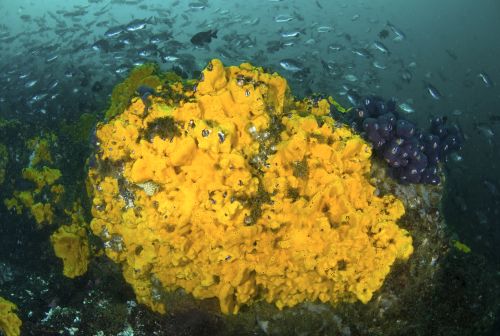Chilean Farmers Fight Brazilian Billionaire’s Plans for Thermoelectric Plant In Area of Rich Marine Biodiversity
Chilean community wins first round against Brazilian billionaire
By Marianela Jarroud
IPS
Santiago, Chile — Plans to build a massive thermoelectric power plant complex near an area of rich marine biodiversity has sparked fierce opposition from the small northern Chilean farming town of Totoral, which has now scored its first victory in court.
Behind the Castilla thermoelectric project is the energy company MPX, a subsidiary of the EPX Group owned by Brazilian billionaire Eike Batista, the seventh wealthiest man in the world according to Forbes magazine.
Located 810 km from Santiago in the arid Atacama region of northern Chile, the complex would be the largest thermal power generation facility in South America.
The 4.4-billion-dollar project comprises eight thermoelectric plants: six coal-fired plants that would produce 300 MW of electricity each, and two run on oil with an individual capacity of around 127 MW.
As a whole, the complex would contribute an additional 2,100 MW of power to the Central Interconnected System, which supplies electricity to 90 percent of the Chilean population and is currently controlled by an oligopoly made up by the companies Endesa, Colbún and AES Gener.
The project’s supporters insist that its location in a rocky area spanning 240 hectares is fully acceptable, since it is officially classified for industrial use area under current zoning regulations.
But its fervent opponents point to the threat it poses to the rich marine life in the waters off Punta Cachos, near Totoral. Moreover, the farming community itself could also be seriously impacted by the pollution created through thermoelectric power production.
Punta Cachos “is an area of great marine biodiversity,”
said Alex Muñoz, executive director of the Chilean branch of the conservationist organisation Oceana.
It is home to populations of Humboldt penguins (Spheniscus humboldti) and Guanay cormorants (Phalacrocorax bougainvilii), among other birds, and a colony of green sea turtles (Chelonia mydas), “as well as one of the few seagrass prairies in Chile,” Muñoz told Tierramérica.
To cool the power plants’ generators, Castilla will suck up millions of liters of seawater daily, which will then be returned to the Pacific Ocean at far higher temperatures.
Hotter water “alters the normal functioning of marine ecosystems, causing imbalances that threaten the conservation of biodiversity and the various marine resources that support the livelihoods of local communities,” warned Muñoz.
In addition, thermoelectric plants emit particulate matter such as nitrogen oxide, sulfur dioxide and heavy metals like mercury that are extremely harmful to human health, stressed environmental activist Sara Larraín, director of the non-governmental organisation Chile Sustentable (Sustainable Chile).
Muñoz explained that
“when coal is burned, mercury is released in the form of gas.”
Once it is the atmosphere, it condenses and settles into the sea, contaminating marine life.
“The consumption of fish or seafood contaminated with mercury can have serious effects, such as alterations in the brain development of fetuses and the cardiopulmonary health of adults,” added Muñoz.
The World Health Organisation classifies mercury as one of the top 10 chemicals of public health concern.
The Castilla project includes the construction of a port for unloading coal, a series of road networks and storage facilities, and a 100-hectare site for the disposal of ash, also a source of contamination.
The General Law on Electrical Services, passed in 1982 during the Augusto Pinochet dictatorship (1973-1990), “handed electric power development over to the private sector,” Larraín told Tierramérica. As a result, since then, it is the private sector that “decides what will be done, where, and with what technology,” she said.
The inhabitants of Totoral are the main opponents to the Castilla project. Although they have the support of a few environmental organisations, it is still a highly unequal battle.
Nevertheless, the community’s perseverance has earned its first reward. On Mar. 6, the Court of Appeals of Antofagasta passed a ruling on a suit filed against the plant.
The court ruling stated that the environmental permit for the construction of the Castilla complex was based on a report produced through illegal and arbitrary means, and should therefore never have been granted.
The battle will now continue in the Supreme Court of Justice. The company and the State Defense Council each filed an application for judicial review of the court ruling on Mar. 14, which should reach the supreme court in four or five working days.
Larraín said she was optimistic that the ruling of the Court of Appeals of Antofagasta, which has brought construction work to a standstill, would be respected.
“Chile has enormous comparative advantages for the production of a good part of its energy from non-conventional renewable sources, like wind, solar and tidal power,” maintained Muñoz.
For his part, Minister of the Economy Pablo Longueira claimed that the court-ordered halt in construction “is doing enormous damage to the country,” which needs to increase its power generation capacity in order to keep growing.
“Today the biggest problem we are facing for economic growth is energy, the cost that Chile has to pay for this input for the entire basic economy, and also water resources,” said Longueira.
As far as Larraín is concerned, however, it is “absurd” for Chile to continue depending on “dirty, expensive imported fuels, instead of using its own alternatives.”
In a 2010 interview with the Chilean magazine Qué Pasa, Batista defended the Castilla project.
“If the authorities decide we shouldn’t go ahead with the project, I would recommend that all of the women in the world stop drying their hair, and that people to stop using cell phones and driving cars,”
said the Brazilian tycoon.
“This is important for the Chileans.”
Source: IPS | Haiti Chery (photos) | *The writer is an IPS correspondent. This story was originally published by Latin American newspapers that are part of the Tierramérica network.












Comments
Chilean Farmers Fight Brazilian Billionaire’s Plans for Thermoelectric Plant In Area of Rich Marine Biodiversity — No Comments